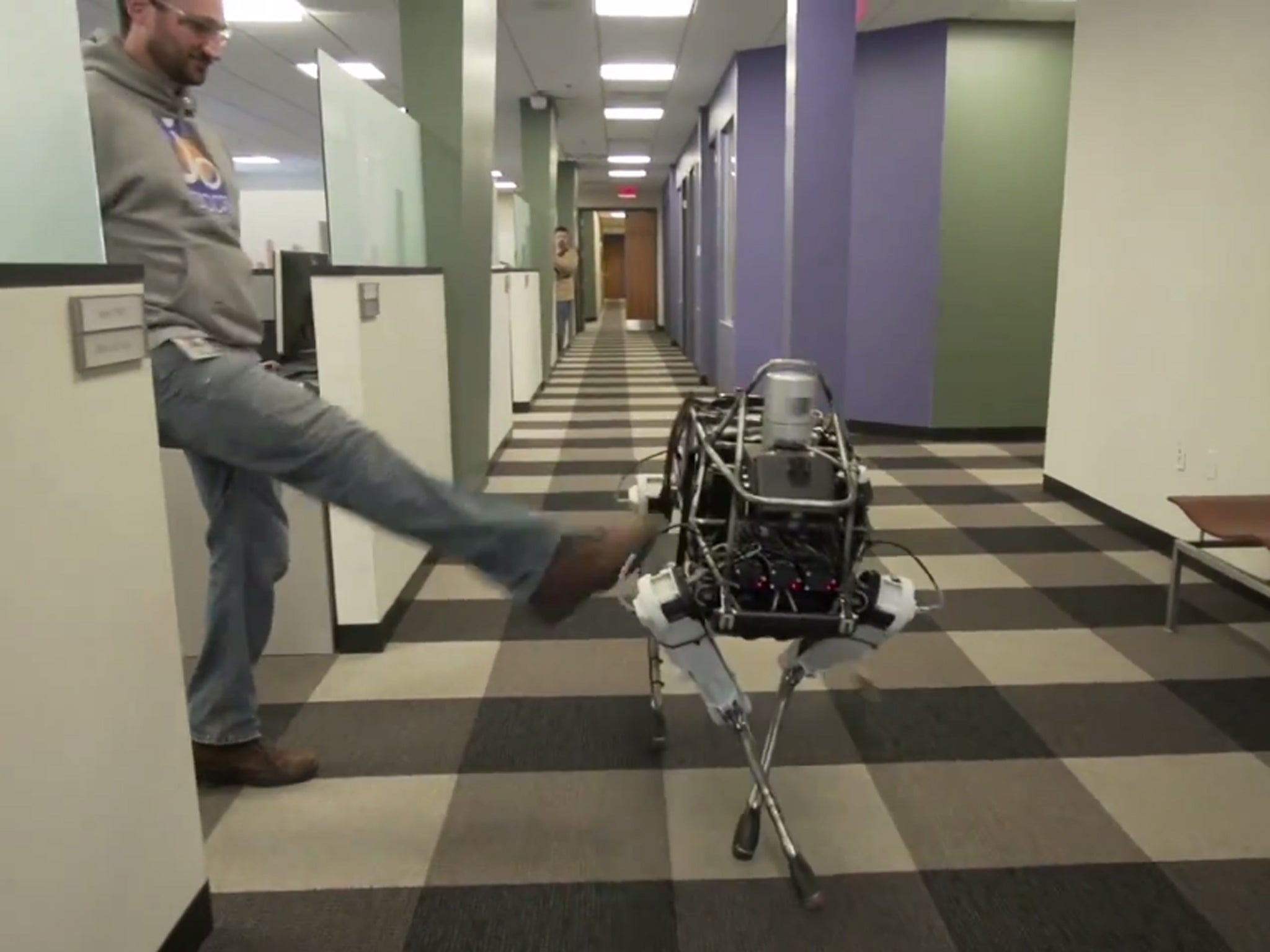Robot dog: can we kick it? The terrifying questions about the future of military robots
Boston Dynamics' demonstration of its new robot dog ends with the message that no robots were harmed in making it — but will it always be that way?

There’s a moment, during the video demonstrating Spot the robot dog, where it seems to cower. It’s very brief — and almost certainly a combination of projection and the mechanisms that keep the dog upright — but does it matter?
At the beginning of the video, a dog wakes up and walks down a corridor. It looks cute — especially for a robot created to carry weaponry for the US Army. It trundles down a corridor. And then a man walks out and kicks it.
It’s supposed to be a demonstration of the power of the new dog, and its ability to withstand kicks. And it works — the machinery goes into overdrive to keep it standing up. But the whirr of its machines sounds a little like whimpering.
The video ends with a disclaimer, telling viewers that no robots were harmed in the making of this video".
But kicking is the least of what little Spot will eventually be expected to withstand. Boston Dynamics’ robots are being created to eventually work as packhorses and scouts for the army, in difficult terrain. If kicking the little robot excites our sympathies — what should we think about sending it off to war?
That will be an increasingly important question as artificial intelligence gets more and more clever, and as a result more likely to be both abused and abusive. It’s been a big week for robots — which will soon be staffing hotels and can learn to cook from YouTube — but one that comes at a time of increased concern about the possibilities of AI.
Meet the robots - the strange creations of Boston Dynamics
Show all 6Many of our brightest minds have voice worries about AI — Elon Musk and Stephen Hawking, as well as representatives of Boston Dynamics’ owner, Google, recent signalled their concern about what it might mean for humans in an open letter.
But as well as endangering humans, it could endanger the robots themselves. Defence groups and other researchers want to make their robots’ intelligence more and more clever — but in doing so they also make it more like us, and more likely to be afraid of the things we want them to do.
For now, it’s the stuff of science fiction. But soon it will be fact, and as well as cooking for us the robots will be fighting our wars. But whose side will they, and we, be on?
Subscribe to Independent Premium to bookmark this article
Want to bookmark your favourite articles and stories to read or reference later? Start your Independent Premium subscription today.

Join our commenting forum
Join thought-provoking conversations, follow other Independent readers and see their replies